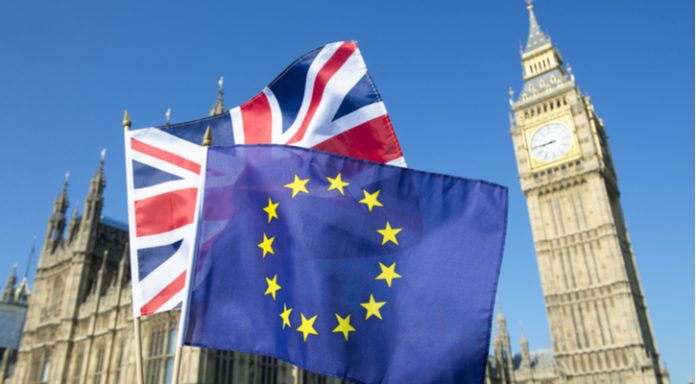The pound closed higher versus the dollar for the second straight session on Friday. However, this was insufficient to see the pound finish the week higher versus the dollar. The pound US dollar exchange rate closed the week 0.5% lower at US$1.3975.
| What do these figures mean? |
|---|
|
When measuring the value of a pair of currencies, one set equals 1 unit and the other shows the current equivalent. As the market moves, the amount will vary from minute to minute. For example, it could be written: 1 GBP = 1.28934 USD Here, £1 is equivalent to approximately $1.29. This specifically measures the pound’s worth against the dollar. If the US dollar amount increases in this pairing, it’s positive for the pound. Or, if you were looking at it the other way around: 1 USD = 0.77786 GBP In this example, $1 is equivalent to approximately £0.78. This measures the US dollar’s worth versus the British pound. If the sterling number gets larger, it’s good news for the dollar. |
The pound could experience some volatility as the markets open this morning and market participants respond to Brexit developments. Brexit negotiations have been going on over the past week, without too many negative headlines. Last week, UK Prime Minister Theresa May and her Brexit cabinet also met, appearing to have put internal divisions behind them, for the time being at least.
Yet despite unity breaking out in the Brexit cabinet, there have been reports of some 10 Tory members telling Theresa May that they will vote to halt Britain’s exit from the customs union. This could be a potentially disastrous rebellion for Theresa May.
| How does political risk have impact on a currency? |
|---|
| Political risk drags on the confidence of consumers and businesses alike, which means both corporations and regular households are then less inclined to spend money. The drop in spending, in turn, slows the economy. Foreign investors prefer to invest their money in politically stable countries as well as those with strong economies. Signs that a country is politically or economically less stable will result in foreign investors pulling their money out of the country. This means selling out of the local currency, which then increases its supply and, in turn, devalues the money. |
With little in the way of economic data releases through the week Brexit will continue to drive the direction of the pound. A speech by Theresa May “the road to Brexit” will be the most closely watched event of the week for pound traders.
Fed Speakers in Focus Before Data Picks Up Later In The Week
US interest rate expectations have been under the spotlight for the last few weeks. Investors have been starting to consider that the Fed may need to raise interest rates at a faster rate than initially thought. However, the US dollar lost ground towards the end of last week after some more cautionary comments from Fed officials at the end of last week.
At the beginning of this week, Fed speakers will continue to remain in focus as investors assess the chances of the Fed raising interest rates four time through 2018 rather than the 3 times pencilled in.
| Why do raised interest rates boost a currency’s value? |
|---|
| Interest rates are key to understanding exchange rate movements. Those who have large sums of money to invest want the highest return on their investments. Higher interest rate environments tend to offer higher yields. So, if the interest rate or at least the interest rate expectation of a country is relatively higher compared to another, then it attracts more foreign capital investment. Large corporations and investors need local currency to invest. More local currency used then boosts the demand of that currency, pushing the value higher. |
Looking further out across the week, Wednesday could see an increase in volatility as a slew of US economic data is due for release. The high impacting releases include fourth quarter GDP data and inflation figures for the US in the form of Personal Consumption Expenditure (PCE), the Fed’s preferred measure of inflation. Given recent market concerns that inflation could pick up quickly going forwards the PCE reading could be particularly under the spotlight.
|
This article was initially published on TransferWise.com from the same author. The content at Currency Live is the sole opinion of the authors and in no way reflects the views of TransferWise Inc. |





